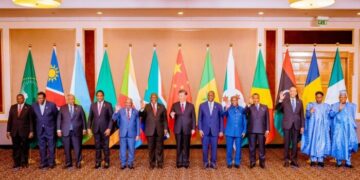In recent years, many countries have revised their criteria for granting citizenship to individuals born within their borders, a concept traditionally known as birthright citizenship. Historically, this principle allowed nearly all individuals born on a country’s soil to automatically acquire its citizenship.
However, shifts in immigration patterns and policy considerations have led several countries to impose additional requirements, such as necessitating that at least one parent be a citizen or legal resident for a child to obtain citizenship at birth.
5 Countries That Have Banned or Restricted Birthright Citizenship
1. United States
The United States has long upheld birthright citizenship under the 14th Amendment, ratified in 1868 to ensure citizenship for freed slaves. In January, 2025, President Donald Trump issued an executive order aiming to end automatic citizenship for children born to non-citizen parents. This move was temporarily blocked by a federal judge, citing potential conflicts with established constitutional interpretations. Legal experts anticipate prolonged judicial proceedings to resolve this contentious issue.
2. Australia
Australia previously practiced unrestricted birthright citizenship. Currently, for a child born in Australia to automatically acquire citizenship, at least one parent must be an Australian citizen or permanent resident at the time of the child’s birth. Alternatively, if neither parent meets these criteria, the child can still obtain citizenship by residing in Australia until the age of ten.
3. India
India has modified its birthright citizenship laws to require that at least one parent be an Indian citizen, and the other parent must not be an illegal immigrant at the time of the child’s birth. This change aims to address concerns related to unauthorized immigration and its impact on national demographics.
4. Ireland
In 2004, Ireland amended its constitution through the Twenty-seventh Amendment, altering its approach to birthright citizenship. Previously, Ireland granted automatic citizenship to individuals born on the island. Post-amendment, at least one parent must be an Irish citizen or have resided legally in Ireland for three out of the four years preceding the child’s birth for the child to acquire citizenship at birth.
5. New Zealand
New Zealand has also revised its birthright citizenship policies. Currently, a child born in New Zealand is granted citizenship at birth only if at least one parent is a New Zealand citizen or holds a residence class visa. This policy shift reflects the country’s efforts to manage immigration and ensure that citizenship is conferred in alignment with parental ties to the nation.
These policy changes across various countries underscore a global trend toward more restrictive birthright citizenship laws, often influenced by concerns over immigration control, national identity, and social integration.






































Discussion about this post